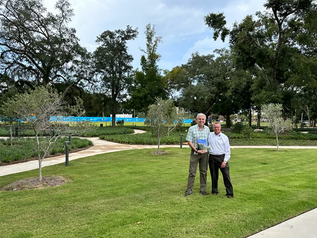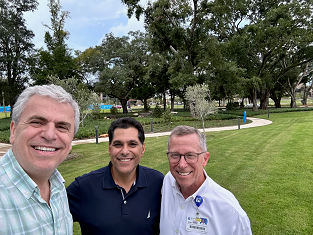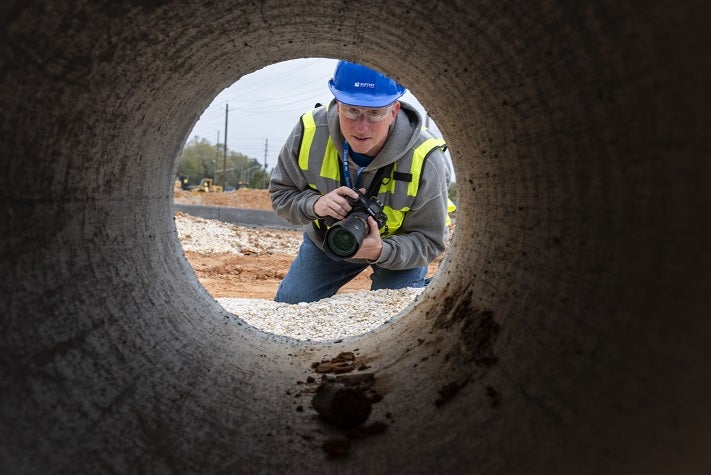Olive Trees Symbolic of Baptist’s Deeply Rooted Culture

An olive tree’s root system is nearly indestructible. It is robust and capable of withstanding the most devastating conditions, such as disease, fire, frost and drought. Olive trees are also known for longevity, with some living for hundreds or thousands of years. Biblically, olives are known to be a symbol of peace and prosperity.
Thabet Alsheikh, M.D., FHRS, FACC, electrophysiologist and chairman at Baptist Heart & Vascular Institute, grew up in Syria, where his family has grown olive trees for over a hundred years. His father, now 91 years old, has continued the ritual of cultivating the hardy plants. The family recognizes the importance of sowing for the future. “My father and grandfather both planted olive trees that they will never see fully grown, but they do not plant for themselves,” Dr. Alsheikh said. “They plant for future generations because they believe in passing on the benefits and prosperity.”
When the plans for the new campus were announced in 2019, Dr. Alsheikh asked Baptist senior leaders to consider planting olive trees at the new Baptist Hospital. He saw the deep connection between our culture and the symbolism in his homeland’s tree – how it could thrive and bring comfort to those in Northwest Florida and beyond.
“I could not think of a better tree to plant that symbolizes Baptist culture,” Dr. Alsheikh said. “We did not happen to find Baptist culture on E and Moreno streets. It took the efforts of generations to build and maintain that culture that now relocated to Brent Lane. Like the olive tree, our culture needs to be nurtured, watered and harvested to continue to thrive.”
Olive trees are known for resiliency, and so are the people at Baptist. Our teams have faced significant challenges within the last several years. Like the olive tree, we never give up. We remain planted and rooted in this community and are here to serve.
“It’s hard to kill an olive tree once you establish it,” Dr. Alsheikh said. “That’s why I felt so strongly about planting some on our new campus to represent our spirit and culture at Baptist. I see our culture as long-living and long-lasting – we may not even see the true benefits of our culture (trees) and our glorious impact, but future generations will see and feel it. Culture takes a long time to build (or take away), but we must do it.”
In the health care ministry, we quantify many things, yet often there are times we can’t adequately measure the impact of our work. We do it because it’s a calling -- our nature and our passion. Olive trees continue to grow and provide, which Baptist continues to do as well.
John Porter, vice president of corporate construction services, worked with Dr. Alsheikh and new campus landscapers and designers to ensure three olive trees were planted as part of the campus town square.
This trio equals a grove. Each one is intended to continue The Baptist Way while representing peace, hope and prosperity. We wish these notions for everyone in our community and those we serve.

(Pictured left to right: Thabet Alsheikh, M.D., FHRS, FACC, Hani Razek, M.D., FACC, and John Porter smile proudly in front of the olive tree grove planted at the new Baptist Hospital campus.)
Learn more about our new Baptist Hospital and how it was designed with healing in mind.
Read more about Dr. Alsheikh and the services offered at Baptist Heart & Vascular Institute.


